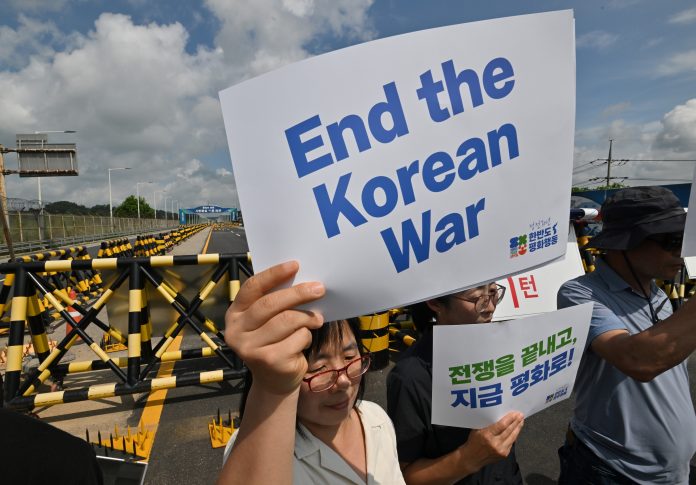Pope Francis on July 27 called on the Catholic community in South Korea to champion “peace” and “reconciliation” as the nation commemorates the 70th year of the armistice.
In his message, the prelate said the armistice “does not refer only to the cessation of hostilities, but also offers a bright future of reconciliation, brotherhood and lasting harmony for the Korean peninsula and for the whole world”.
The Korean War armistice in 1953 drew a new border between North Korea and South Korea. It granted South Korea some additional territory and demilitarized the zone between the two nations. However, a formal peace treaty was never signed.
Pope Francis’ message was read by Cardinal Lazzaro You Heung-sik, prefect of the Congregation for the Clergy, during the “Mass for Peace” at the Cathedral of the Immaculate Conception on Myeongdong in Seoul.
The pontiff said there is a need for constant vigilance in defending and promoting justice and cooperation within communities and among nations, encouraging all Koreans to be “prophets of peace.”
He said peace should be based on respect for individuals, the law, the common good, creation, and moral values passed down through generations.
In his homily, Bishop Peter Lee Ki-heon of Uijeongbu, a native of Pyongyang and president of the Commission for National Reconciliation of the Korean Church, recalled his ordeal before the outbreak of the war.
“My family suffered from the North Korean communist regime’s subtle policy of genocide… During the evacuation process, two of my sisters could not go down with us and became separated families,” he said.
The prelate said working in the National Reconciliation Committee has been his vocation, adding, “I have been a betrothed for almost 50 years and I am about to retire without seeing reunification”.
Bishop Lee Ki-heon said the armistice 70 years ago was intended to last “until a definitive peaceful solution is reached”, which never arrived.
“We have experienced throughout the history of the Korean peninsula that it is not only the conflict of interests or the lack of dialogue between the North and the South that hinders peace on the Korean peninsula, but also the existence of surrounding powers that want to use the Korean Peninsula issue for their own interests,” he said.
The prelate said that it is not the United States or China, but the Korean people who have “to fight for peace on the Korean peninsula”.
“And to that end, the North and the South must work together,” he said. “But the tougher the leaders of the North and South become, the more our people will remain a prisoner of anguish under the shadow of war.” – with reports from AsiaNews









